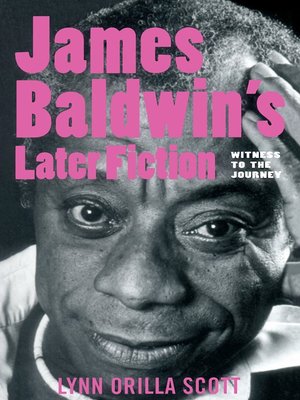
Sign up to save your library
With an OverDrive account, you can save your favorite libraries for at-a-glance information about availability. Find out more about OverDrive accounts.
Find this title in Libby, the library reading app by OverDrive.



Search for a digital library with this title
Title found at these libraries:
| Library Name | Distance |
|---|---|
| Loading... |
James Baldwin's Later Fiction examines the decline of Baldwin's reputation after the middle 1960s, his tepid reception in mainstream and academic venues, and the ways in which critics have often mis-represented and undervalued his work. Scott develops readings of Tell Me How Long the Train's Been Gone, If Beale Street Could Talk, and Just Above My Head that explore the interconnected themes in Baldwin's work: the role of the family in sustaining the arts, the price of success in American society, and the struggle of black artists to change the ways that race, sex, and masculinity are represented in American culture.
Scott argues that Baldwin's later writing crosses the cultural divide between the 1950s and 1960s in response to the civil rights and black power movements. Baldwin's earlier works, his political activism and sexual politics, and traditions of African American autobiography and fiction all play prominent roles in Scott's analysis.







